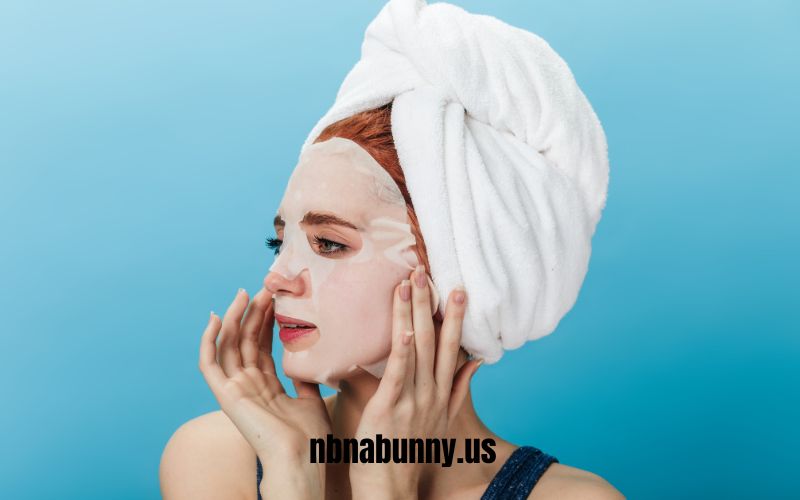Face masks have become an essential part of many skin care routines. They are not just a luxury but a necessity for keeping your skin healthy, hydrated, and glowing. Whether you are dealing with dryness, acne, or dullness, there is a face mask skin care for every need. In this guide, we will explore how face masks work, their benefits, and how you can incorporate them into your weekly routine for the best results.
Face masks are formulated to target specific skin concerns, from reducing blemishes to brightening dull skin. With the wide variety of masks available, understanding their purpose and usage is key to achieving optimal skin health. Let’s dive into the world of face masks and uncover the secrets to radiant skin.
Key Points:
- Face masks target specific skin concerns effectively.
- They provide deep nourishment and hydration.
- Consistent use improves overall skin health.
How Do Face Masks Work?
Face masks are designed to deliver active ingredients deep into your skin. They work by forming a protective layer on your face, allowing the ingredients to penetrate more effectively than regular moisturizers or creams. This targeted approach helps you achieve faster and more noticeable results.
When you apply a face mask, it creates a barrier that traps moisture or active ingredients in the skin. This allows the ingredients to work more intensively, addressing issues like dryness, acne, or aging. Each type of mask has its unique mechanism:
- Clay Masks: These absorb excess oil, unclog pores, and remove impurities, making them ideal for oily and acne-prone skin.
- Sheet Masks: These are infused with concentrated serums that hydrate and nourish the skin, perfect for dry or sensitive skin.
- Peel-off Masks: These remove dead skin cells and impurities, leaving the skin smooth and refreshed.
- Gel Masks: These provide cooling and soothing benefits, suitable for irritated or sunburned skin.
| Type of Face Mask | Primary Benefit | Ideal For |
| Clay Mask | Absorbs oil, detoxifies | Oily/Acne-prone |
| Sheet Mask | Hydration, soothing | Dry/Sensitive |
| Peel-off Mask | Removes impurities | Combination Skin |
| Gel Mask | Cooling, refreshing | All Skin Types |
Note: Always patch test a new face mask to avoid potential skin reactions.
What Are the Benefits of Using Face Masks?
Face masks provide numerous benefits that go beyond basic skin care. Here are some of the most significant advantages:
1. Hydration and Moisture
Face masks can deeply hydrate your skin, especially during dry seasons or after sun exposure. Ingredients like hyaluronic acid, aloe vera, and glycerin help restore moisture levels, leaving your skin soft and supple. A hydrated complexion not only looks healthy but also enhances the effectiveness of other skin care products.
2. Detoxification
Clay and charcoal masks are excellent for detoxifying your skin by removing impurities, toxins, and pollutants. These masks act like a magnet, drawing out dirt and excess oil from your pores. For example, a charcoal mask can visibly reduce blackheads and make your skin feel refreshed.
3. Anti-Aging Effects
Some face masks are enriched with anti-aging ingredients like collagen, retinol, and peptides. These masks help reduce the appearance of fine lines, wrinkles, and sagging skin. Regular use can boost your skin’s elasticity, giving you a youthful glow.
4. Improved Skin Texture
Exfoliating masks, such as peel-off masks or enzyme-based masks, can remove dead skin cells, revealing a smoother and brighter complexion. These masks can also help reduce the appearance of acne scars and uneven skin tone.
5. Relaxation and Stress Relief
Applying a face mask is not just good for your skin; it’s also a great way to unwind. The soothing experience can reduce stress and improve your overall well-being. Scented masks with lavender or chamomile can further enhance relaxation.
Reminder: Do not leave masks on for longer than recommended, as this can irritate your skin.
How to Choose the Right Face Mask for Your Skin Type?
Choosing the right face mask is crucial for achieving the best results. Here’s a guide to help you pick the perfect one based on your skin type:
| Skin Type | Recommended Mask Type | Key Ingredients |
| Oily | Clay/Charcoal | Kaolin, Activated Charcoal |
| Dry | Hydrating | Hyaluronic Acid, Glycerin |
| Sensitive | Soothing | Aloe Vera, Chamomile |
| Combination | Multi-masking | Match masks to each area |
Examples:
- If you have an oily T-zone but dry cheeks, use a clay mask on your T-zone and a hydrating mask on your cheeks.
- For sensitive skin, always go for masks labeled as “dermatologically tested” or “sensitive-skin friendly.”
Pro Tips for Choosing Face Masks:
- Read the ingredient list carefully to avoid allergens or irritants.
- Opt for fragrance-free masks if you have sensitive skin.
- Look for masks with SPF if you plan to use them during the day.
How Often Should You Use a Face Mask?
The frequency of face mask use depends on the type of mask and your skin’s needs. As a general rule:
- Hydrating Masks: 2-3 times a week.
- Clay or Detox Masks: Once a week for normal skin, twice for oily skin.
- Peel-off Masks: Once every two weeks to avoid over-exfoliation.
Example Routine:
- Monday: Hydrating mask to start the week with a fresh glow.
- Wednesday: Clay mask to detoxify and cleanse pores.
- Friday: Gel mask to soothe and refresh your skin after a long week.
Consistency is key. For example, using a hydrating mask twice a week can significantly improve skin texture over time.
Note: Avoid using multiple masks in one day unless you are multi-masking for different areas.
Can You Make Face Masks at Home?
Absolutely! DIY face masks are a great way to use natural ingredients to pamper your skin. Here are a couple of easy recipes:
Hydrating Honey Mask:
- Ingredients: 2 tablespoons of honey, 1 tablespoon of yogurt.
- Instructions: Mix the ingredients and apply evenly. Leave it on for 15-20 minutes before rinsing with warm water.
Detoxifying Charcoal Mask:
- Ingredients: 1 tablespoon of activated charcoal powder, 2 tablespoons of aloe vera gel.
- Instructions: Mix and apply to your face. Let it sit for 10-15 minutes and rinse off gently.
Benefits:
- These masks are free from harmful chemicals.
- You can customize them based on your needs.
Tips for DIY Masks:
- Always use fresh ingredients.
- Store leftover mixtures in the refrigerator and use within 2 days.
Conclusion About Face Mask Care
Face mask skin care is an effective and enjoyable way to enhance your beauty routine. Whether you opt for store-bought or DIY masks, the key is to choose the right type for your skin and use it consistently. By incorporating face masks into your weekly routine, you can achieve healthy, glowing skin effortlessly.
Regular use of face masks not only improves your skin’s appearance but also promotes relaxation and self-care. Make face masks a part of your routine and experience the transformation yourself.
FAQ’s About Face Mask Skin Care
-
Can I use a face mask every day?
It depends on the mask type. Hydrating masks can be used daily, but clay masks should only be used 1-2 times a week.
-
What’s the best time to apply a face mask?
Evening is ideal as your skin repairs itself overnight.
-
Should I moisturize after using a face mask?
Yes, always moisturize to lock in the benefits.
-
Can face masks replace moisturizers?
No, face masks are supplementary and not a replacement for daily moisturizers.
-
Are natural masks better than store-bought ones?
Both are effective; it depends on the ingredients and your skin’s needs.


